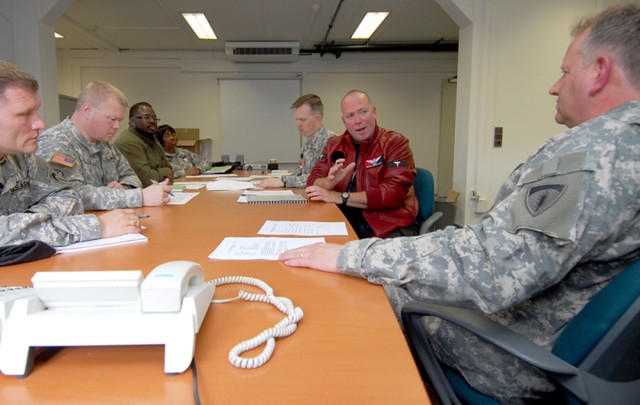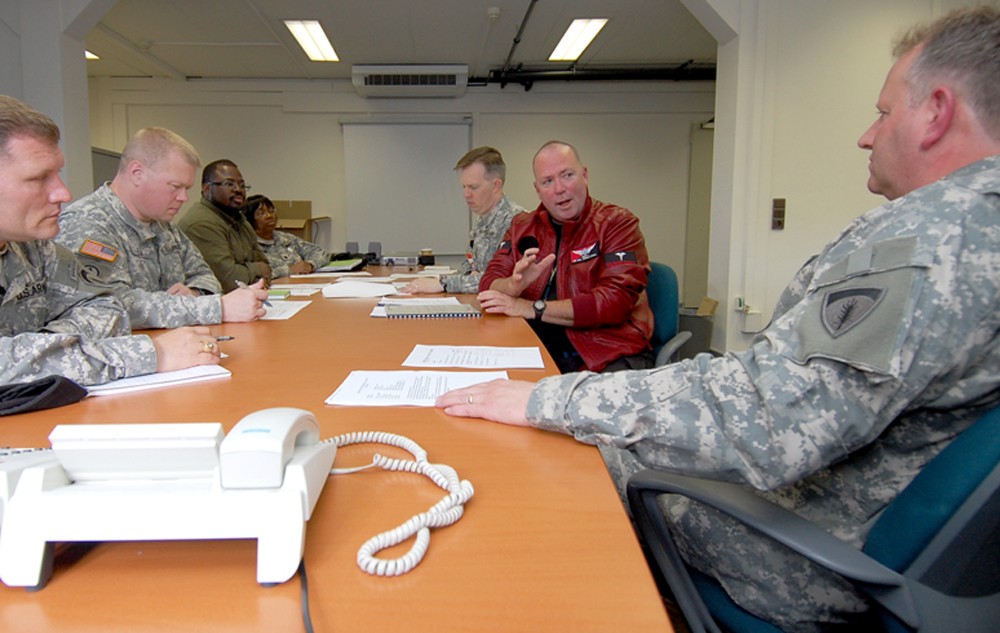
HEIDELBERG, Germany -- Preventive medicine specialists monitoring H1N1 influenza encourage military community members to continue practicing good personal hygiene to help mitigate spread of the virus.
"We recommend following Center for Disease Control and Prevention guidelines: thorough hand washing, covering sneezes and staying home if you are sick," said Lt. Col. John Maza, lead epidemiologist and preventive medicine physician at the U.S. Army Center for Health Promotion and Preventive Medicine - Europe. "Though simple, these are effective preventive measures that will help contain spread of the virus."
According to the World Health Organization, 94,512 laboratory-confirmed cases of H1N1 have been reported worldwide as of July 6. WHO director Dr. Margaret Chan has described effects of this flu as "moderate."
The Department of Defense reports 2,459 cumulative cases as of July 10. The number includes all U.S. military services worldwide. Though some H1N1 cases have been confirmed in U.S. military communities in Europe, Maza said there is no cause for alarm.
"CDC and DoD-approved procedures are proving to be effective in detection and treatment," he said.
Maza said appropriate steps have been implemented to track H1N1 within the U.S. military population in Europe, including surveillance, laboratory identification, testing and treatment.
If a patient presents with influenza-like symptoms - a temperature of 100.5 degrees or higher, a runny nose, cough or sore throat - a clinician should do a nasopharyngeal swab or nasal wash and submit the sample to the Landstuhl Regional Medical Center laboratory for Respiratory Virus Panel testing. If the lab result is probable for H1N1, Landstuhl sends the sample to a host nation lab for confirmation or to a U.S. Air Force lab in Texas capable of performing confirmation testing, or both.
The Landstuhl infectious disease laboratory expects to have CDC-approved confirmation processes in place later this summer to expedite the confirmation process.
Europe Regional Medical Command Preventive Medicine Consultant Col. Evelyn Barraza said patients with probable or confirmed H1N1 cases may be treated with antiviral prescription drugs. She said priority is given to hospitalized persons and those at risk for influenza complications.
"We have been monitoring seasonal influenza for several years in the U.S. European Command area of responsibility," said Maza, is a member of several pandemic working groups that monitor the H1N1 situation. "Though novel H1N1 adds a new dimension by appearing out of what is typically considered the normal influenza season, numerous international civilian and military organizations are monitoring it closely."
Maza said U.S. military services are sharing information among themselves and host nation health authorities. The Department of Defense has also has an H1N1 influenza global surveillance "watch board" at http://fhp.osd.mil/aiwatchboard that is updated regularly.
The Center for Health Promotion and Preventive Medicine - Europe maintains and updates its own pandemic influenza watch board at http://www.chppmeur.healthcare.hqusareur.army.mil with current clinical information and health advisories, as well as links to the World Health Organization and Centers for Disease Control and Prevention.
Maza advises community members to not over-react to confirmed cases or rumors of confirmed cases in their communities.
"Though H1N1 has appeared in military communities in Europe, the good news is that we can alleviate its spread through simple, yet effective, personal and community preventive measures to minimize its spread," Maza said.
For more information, visit www.pandemicflu.gov or the H1N1 flu page at www.eucom.mil. The Europe Regional Medical Command Web site at http://ermc.amedd.army.mil also has links to H1N1 influenza information.

Social Sharing